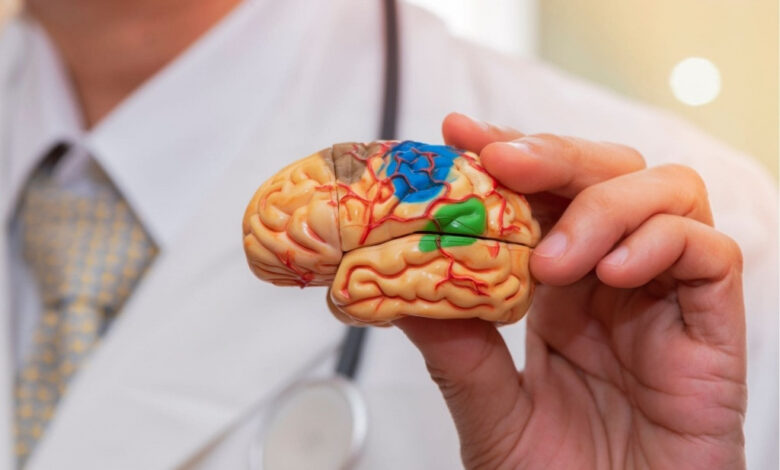Mental Health vs. Mental Illness: Dr. Jordan Sudberg

Introduction
As per Dr. Jordan Sudberg, Mental health and mental illness are frequently used interchangeably, but they are fantastic fundamentals. Knowing the distinction between the two types of ailment is vital to market general well-being and lessen the stigma associated with mental health issues.
The definition of Mental Health
Mental health is the state of being in which an individual or couple realizes their capabilities, manages the everyday stresses of life, performs productively, and contributes positively to their local community. It covers psychological, emotional, and social wellbeing. As per Dr. Jordan Sudberg, living in the United States, Good mental health includes having a high-quality level of shallowness, healthy relationships, solid strategies for coping, and the ability to adapt to the demands of life.
The Mental Health of the Mind
Mental illness is a term used to describe diagnosable disorders that significantly impact a person’s thinking or emotions, behavior, and normal functioning. They are recognized by medical experts and classified in diagnostic manuals, including those of the Diagnostic and Statistical Manual of Mental Disorders (DSM-five). Mental disorders may range from prevalent issues such as anxiety and despair to more intense conditions like bipolar disorder or schizophrenia. Illness.
Key differentiates
Continuum
Mental health can be described as an equilateral line, ranging from the highest level of well-being to severe intellectual illness. It’s not a binary state. However, it is a spectrum of individuals who experience varying levels of mental health. Mental ill-health, in turn, is a specific diagnosis based on a list of indicators and criteria.
Impact
Mental health can affect a person’s fundamental quality of life, relationships, and ability to deal with life’s challenging circumstances. It covers every wonderful as well as negative element of well-being. Mental illness, however, can significantly hinder a person’s performance, impacting various aspects of their lives, including relationships, paintings, and sports.
Diagnostics and Treatment
Mental health doesn’t require a specific diagnosis because it’s a broad concept that covers the overall state of health. In turn, mental illness is diagnosed by mental health specialists by referring to specific standards in diagnostic guides. Treatment for intellectual ailment typically requires a mix of treatment as well as treatment and support services.
Stigma
Dr. Jordan Sudberg says mental health-demanding situations are not uncommon and are experienced by many people earlier or later throughout their lives. Advancing emotional well-being requires eliminating marks of shame from distressing circumstances and empowering conversations about them. However, mental illness often has a higher stigma because of misperceptions, fear, and discrimination associated with specific diagnoses.
Implications and Importance
Knowing the distinction between mental well-being and disease is crucial for many reasons:
Promoting Wellbeing
Understanding the importance of mental health can encourage people to prioritize self-care, get help, and develop strategies to help improve their general health.
Early Intervention
The distinction between Mental illness and intellectual health will allow early identification of mental health issues related to ability. Early intervention could prevent the progression of symptoms and lead to more severe consequences for treatment.
Reduces Stigma
When we recognize that mental health-related situations are typical in human life, We can lessen the stigma surrounding mental health issues. It encourages compassion, knowledge, and assistance for those suffering from mental health issues.
access to treatment
Accurate knowledge regarding mental illness and illness ensures that patients have access to appropriate support and services for mental health. This encourages individuals to seek out professional assistance and gain access to essential resources to meet their specific requirements.
All-round Wellbeing
According to Dr. Jordan Sudberg, Mental health is essential to our wellbeing. It’s not just about the absence of intellectual contaminants; it also includes positive elements that lead to the highest level of functioning life and a happy one. If the mental state of our health is in good shape and healthy, we’re more prepared to tackle the difficulties and stresses that life throws our way.
Physical Health
There are major areas of strength for physical and psychological wellness. Mental health issues can lead to increased health issues such as diabetes, cardiovascular disorders, and an impaired immune system. In contrast, maintaining good mental health can improve the physical health effects and enhance regular sturdiness.
Performance and Productivity
Mental health is tightly linked to our capacity to excel in various aspects of life, such as education, painting, and private pursuits. If our mental health is at its peak, we can be aware and attentive and make intelligent decisions. It enhances our ability to think creatively, solve problems, and general productivity.
Qualitative of Life and Life Satisfaction
At the point when our emotional well-being is generally protected, we experience more noteworthy life fulfillment, more fulfillment, and more bliss. It improves our ability to enjoy life, participate in meaningful pursuits, and maintain a positive outlook.
Conclusion
The concepts of mental health and physical illness are both unique yet interconnected. While Mental Health can be described as an entire nation properly being mentally healthy, mental illness refers to illnesses that can be diagnosed and significantly impact the person’s ability to function. Recognizing this distinction allows us to promote mental well-being, reduce stigma, and provide access to the appropriate help and treatment for people suffering from mental health issues.
In the words of Dr. Jordan Sudberg, Understanding the importance of mental health is crucial for families, individuals, communities, and society. It affects many aspects of our lives. This includes relationships, health productivity, resilience, self-esteem, vanity, and everyday life satisfaction. Self-care for mental health is a priority, and seeking help and promoting awareness of mental health could lead to a more positive, healthier, healthy, and satisfied life.





